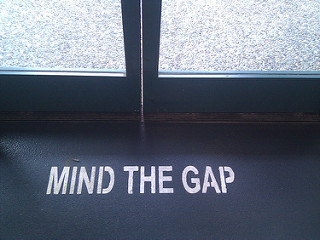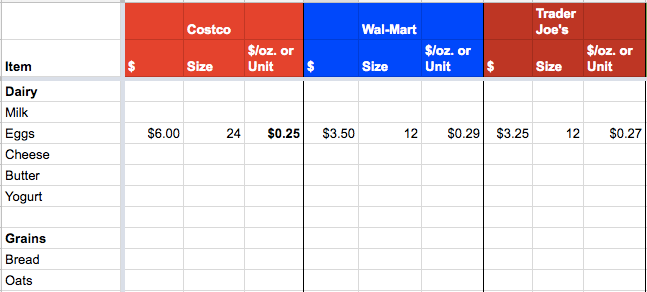You know that feeling you get when you walk in to an amusement park, fair, arcade, or casino? You’re immediately bombarded with an unending stream of visuals, sounds, smells, and other stimuli. At first, you get a rush of adrenaline and excitement, but that quickly turns into something else.
“Should I wait in line for this now? Or come back later?”
“Should I grab food, or after I do that one ride first.”
“Should I stop and play this game while it is open, or get more tokens first?”
“Should I go to the bathroom now, or wait until I come across the next one?”
A never-ending series of possibilities and choices turn what should be a fun or thrilling experience away from work into a completely exhausting decision-making marathon.
Granted, few of us go to amusement parks or casinos that often, so how about some examples that pop up more frequently in our lives? Maybe you get a similar feeling of overwhelm when you join a large work social event or party. Or, when walking in to a massive convention. Or, at your local mall. Maybe you feel that way when you come back to work after some time off only to find hundreds of thousands of emails, all with varying degrees of urgency, waiting for your reply. Or, when you open your DVR or streaming service to find dozens of great shows or movies anxiously awaiting you. Or, when you open your closet in the morning to decide which of hundreds of clothing pairings you’ll throw on for that day.
I feel it when I open my web browser to find 30+ tabs, each a reminder of their own to-do.
Even in our seemingly mundane daily lives, we face what can be a debilitating number of decisions each day. It’s been said that the average consumer is exposed to 5,000+ advertisements per day. At any given moment, more than a dozen things could be vying for our time, money, and attention. Cognitive load, or cognitive overload is very real. And it’s a problem.
There’s a reason why casinos, amusement parks, arcades, and malls bombard you with stimuli: between the stimuli and endless decision-making, your brain gets fatigued. And when your brain gets fatigued, you’re less guarded with your money.
This cognitive overload has the potential to permeate the mundane as well. A novice or intermediate DIY project that would have been a no-brainer weekend project 30 or 50 years ago can now seem like an insurmountable feat when combined with everything else on your to-do list. This often leads to us outsourcing it to professionals out of perceived (often not real) convenience. That task could be changing a car air filter, cleaning our home or apartment, or simply cooking a meal! It could also be the alleviation of making a decision, through completing an impulsive purchase.
The problem with all of this, is that convenience is pricey. Very pricey. And consumption doesn’t make us happier.
Cognitive load and overload leads to us departing with our money. Or, often times, simply avoiding a decision and doing nothing at all. So, it stands to reason that reducing cognitive load can lead to us retaining or saving more of our money and living more purposeful lives, with less distraction and more gratitude for what is good in our lives. And that seems like a valiant pursuit.
What I recommend is setting aside a few weekends, and going through this list of ways to limit or reduce cognitive load:
- Archive or clean out your email inbox
- Unsubscribe from retailers that bombard your inbox
- Reduce your wardrobe to just the items that you wear at least monthly
- Limit the websites that you subscribe to and frequently read (minus this one, of course)
- Unsubscribe to streaming services that are no longer worth the price
- Get rid of all items around your home that you don’t use at least monthly or seasonally
- Stop watching television series that don’t bring educational value or joy
- Unfriend, block, or unfollow social media personalities, in bulk (better yet, delete the apps altogether)
You, like many tech executives, could spend thousands for a weekend “digital detox”. But, that’s just another perceived convenience (in reality, escapism), and only temporarily removes the stimuli. In order to tackle this problem head on, you’re going to have to untangle the physical and digital clutter that you have amassed over decades, and build new habits. It will be hard work, but it will be worth it. Your personal finances and mental health will be the benefactors.




